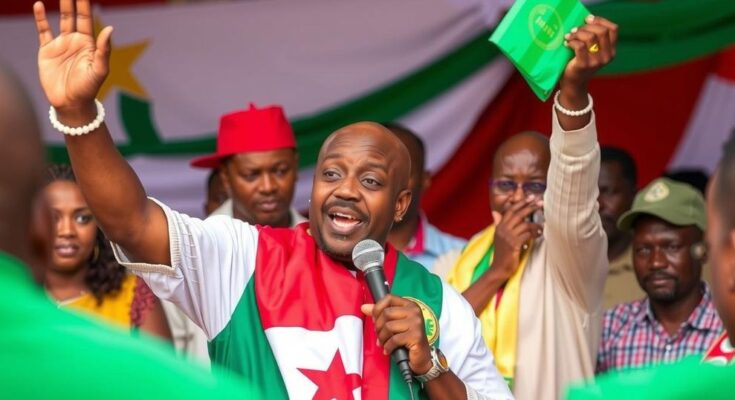Chad’s ruling Patriotic Salvation Movement won 124 of 188 National Assembly seats in an election boycotted by significant opposition parties. The turnout was reported at 51.56%, with critics describing the election as a “charade”. This marked Chad’s first parliamentary election in over a decade, amid ongoing security issues and strained relations with France.
In a contentious parliamentary election held last month, Chad’s ruling party has claimed a significant majority in the National Assembly, acquiring 124 out of 188 seats. The electoral commission, led by Ahmed Bartchiret, reported this outcome following a vote that was largely boycotted by opposition factions. The Patriotic Salvation Movement, under President Mahamat Idriss Deby, positioned this election as a pivotal step toward democratic transition subsequent to Deby’s ascent to power after his father’s long tenure. Opposition voices have dubbed the election a “charade,” citing a participation rate of 51.56 percent as indicative of widespread skepticism regarding the electoral integrity.
Critics maintain that the boycotting of the vote by over ten opposition groups, including the prominent Transformers party, raises significant concerns over the credibility of the election process. Opposition leaders had warned that the election might mirror the issues observed during last year’s disputed presidential vote, which had previously been discredited by election monitors. The parliamentary elections, which encompassed municipal and regional votes, represented the first such occurrence in more than a decade, underscoring the rarity of electoral activities in Chad.
Chad’s political landscape has undergone significant changes since the military takeover by Mahamat Idriss Deby in 2021, following the death of his father, longtime President Idriss Deby Itno, who had maintained power for three decades. Mahamat Deby’s government sought to portray the December 29 election as part of a democratic transition, claiming to decentralize authority and distribute power more equitably across the country. However, the opposition’s decision to boycott the election and their subsequent denunciation of the process as a sham has cast serious doubts on the legitimacy of the electoral outcomes, amidst ongoing security challenges and a complex geopolitical narrative in the region, particularly concerning relations with France and rising influences from other powers like Russia.
In summary, the recent parliamentary election in Chad has resulted in a majority for the ruling Patriotic Salvation Movement, amidst significant opposition boycotts that raise questions about the election’s validity. The political climate is further complicated by security challenges and evolving international relations, particularly the diminishing military partnership with France. While the government touts this election as a step towards democratization, the credibility of such claims remains in serious question, highlighted by the dissent from major opposition parties.
Original Source: www.aljazeera.com




